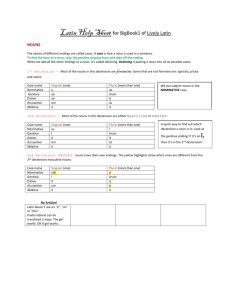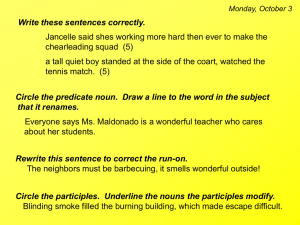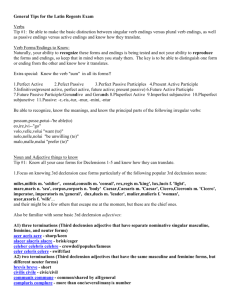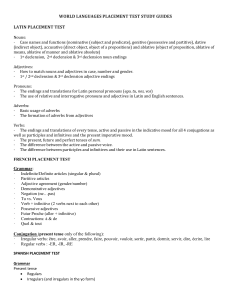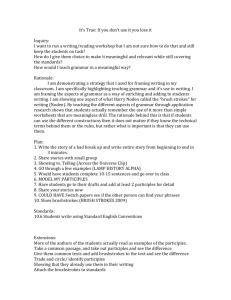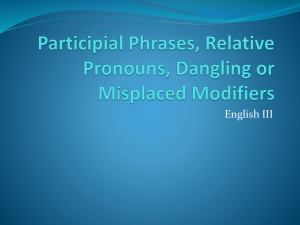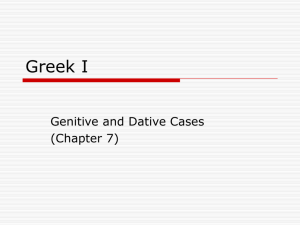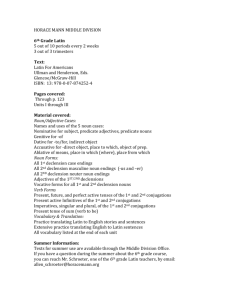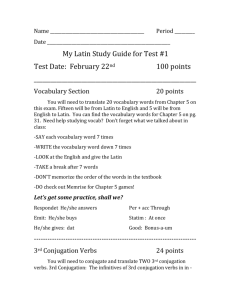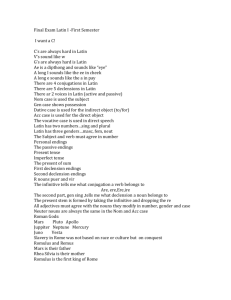Latin Participles
advertisement
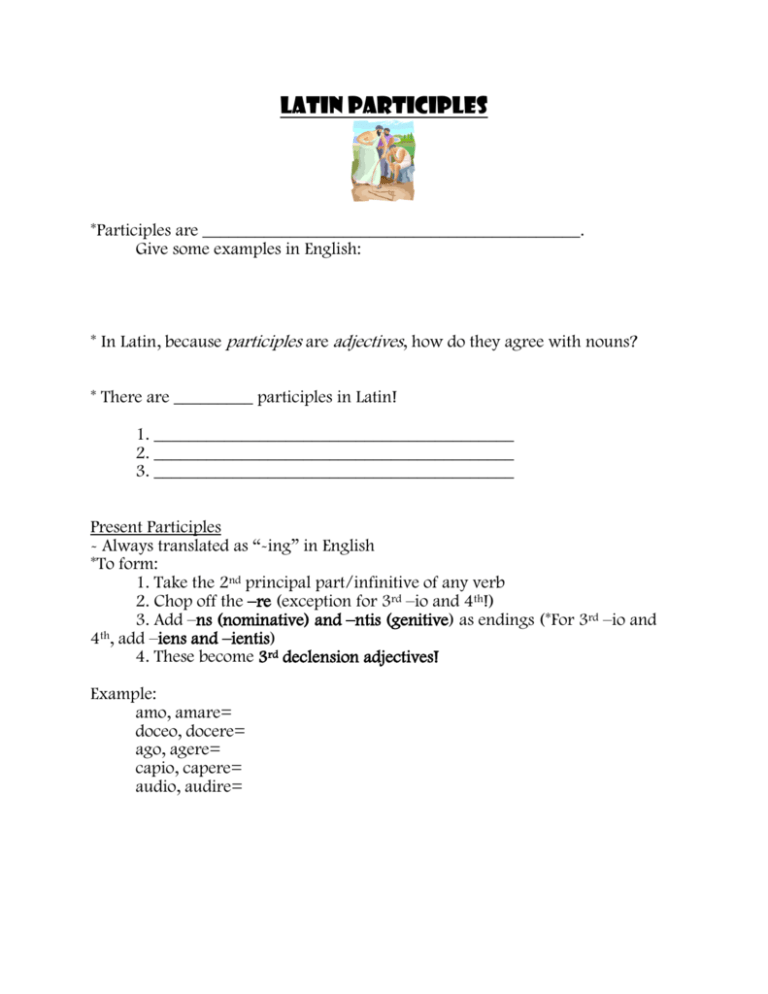
Latin Participles *Participles are ___________________________________________. Give some examples in English: * In Latin, because participles are adjectives, how do they agree with nouns? * There are _________ participles in Latin! 1. _________________________________________ 2. _________________________________________ 3. _________________________________________ Present Participles - Always translated as “-ing” in English *To form: 1. Take the 2nd principal part/infinitive of any verb 2. Chop off the –re (exception for 3rd –io and 4th!) 3. Add –ns (nominative) and –ntis (genitive) as endings (*For 3rd –io and 4th, add –iens and –ientis) 4. These become 3rd declension adjectives! Example: amo, amare= doceo, docere= ago, agere= capio, capere= audio, audire= Review of 3rd Declension Endings for Participles: Singular Nominative Plural Genitive Dative Accusative Ablative Sample: Magistra, Latinam docens, ad discipulos dicentes clamavit. Perfect Passive Participles - always translated as “-ed” or “having been –ed” To Form: 1. They are the SAME as the 4th principal part of any verb! 2. They are the same as 1st and 2nd Declension Adjectives Example: amo= doceo= ago= capio= audio= Review of 1st and 2nd Declension Participle Endings: Singular Nominative Genitive Dative Accusative Ablative Plural Sample: Caesar, victus a Germanis heri, hodie eos necabit! Future Active Participles -translated as “about to______”, “going to __________”, destined to _________”,“intending to____________” *To form: 1. Take your 4th principal part 2. Chop off any endings 3. Add –urus, -ura, -urum 4. It becomes a 1st and 2nd declension adjective Examples: amo= doceo= ago= capio= audio= Sample: Nos morituri te salutamus. Puella lacrimatura mappam1 tenuit. How to remember???? 1 Mappa, -ae= tissue

